Interview: At Home With Joseph C. Townsend
Last season the cabaret community watched a star get born.
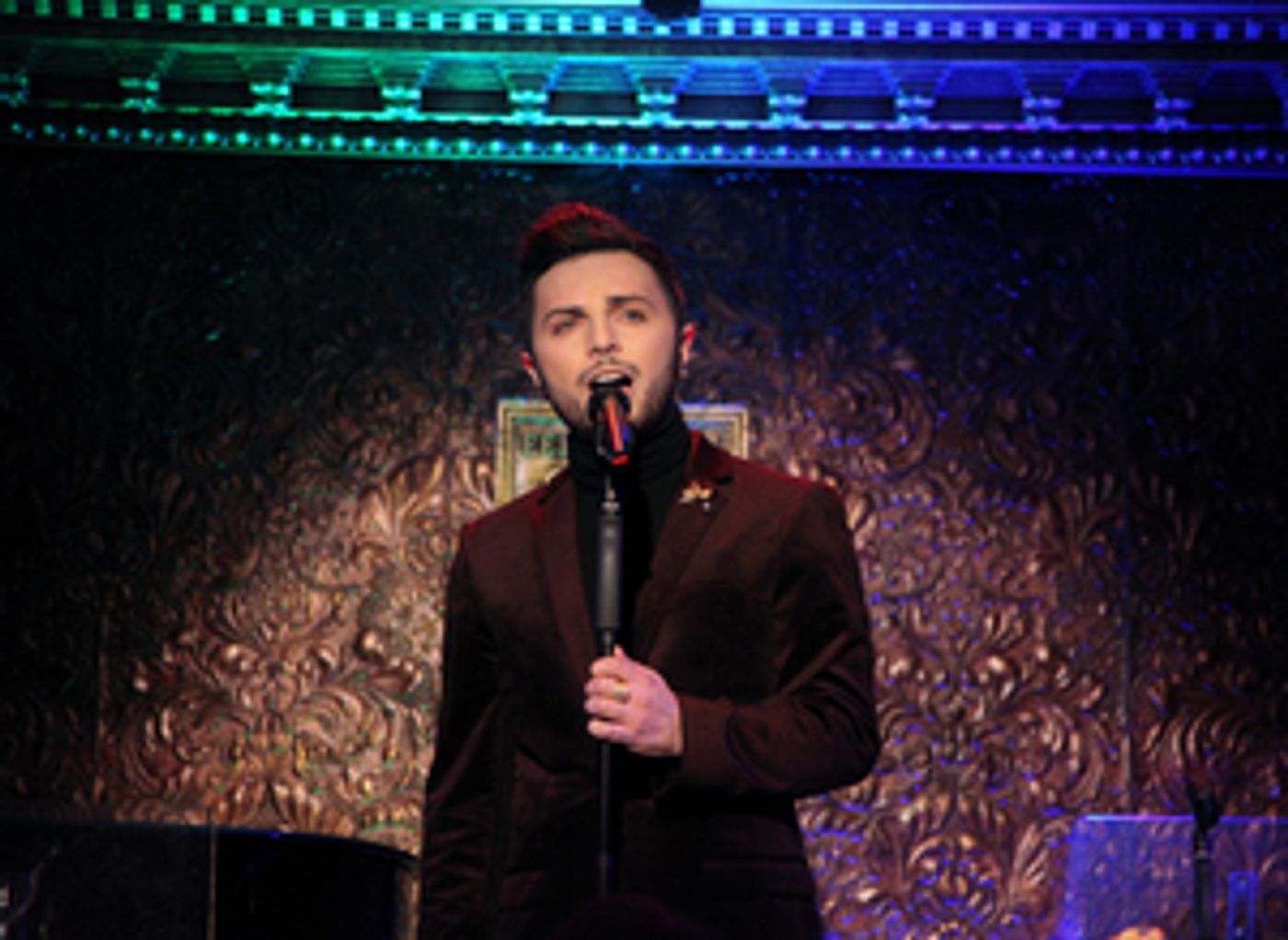 In one of the funniest online self-descriptions, Joseph C. Townsend's Instagram page says "Tiny man. Big voice." The declaration does not exaggerate: Mr. Townsend's octave range is four and a half, and people who have been in the room to witness a live performance have found themselves wondering how one human being (let alone one who stands 5'2" tall) masters such power. One memorable night a few months ago, Townsend accidentally pulled the mic cord from the microphone and just kept going, as the crowds screamed and cheered - it was a night to remember.
In one of the funniest online self-descriptions, Joseph C. Townsend's Instagram page says "Tiny man. Big voice." The declaration does not exaggerate: Mr. Townsend's octave range is four and a half, and people who have been in the room to witness a live performance have found themselves wondering how one human being (let alone one who stands 5'2" tall) masters such power. One memorable night a few months ago, Townsend accidentally pulled the mic cord from the microphone and just kept going, as the crowds screamed and cheered - it was a night to remember.
It isn't just about the vocal prowess for Joseph, though: this singing actor takes the storytelling seriously, as though he himself had written the songs he sings. Townsend works tirelessly at his craft, doing a deep dive into every number, finding the acting rhythms in the lyrics and the tale to be told; it is his dedication to all the parts of his craft that has seen him booked into group shows and special events - Joe Townsend is always in demand.
Interested to learn about the gentle giant and his commitment to craft, I reached out so that we could have a chat about his training, his familial support, and all those chic jackets.
This interview was conducted digitally and is reproduced with minimal edits.
Name: Joseph C. Townsend
First Cabaret Show (Title, Year, Club): An Evening With Series... Dame Shirley Bassey, GR42, December 2019
Most Recent Cabaret Show: An Evening With Series... Dolly Parton, GR42, March 2020
Website or Social Media Handles:
Website: www.josephctownsend.com
YouTube: www.youtube.com/josephctownsend
Facebook: www.facebook.com/thejosephctownsend
Instagram: @thejosephctownsend
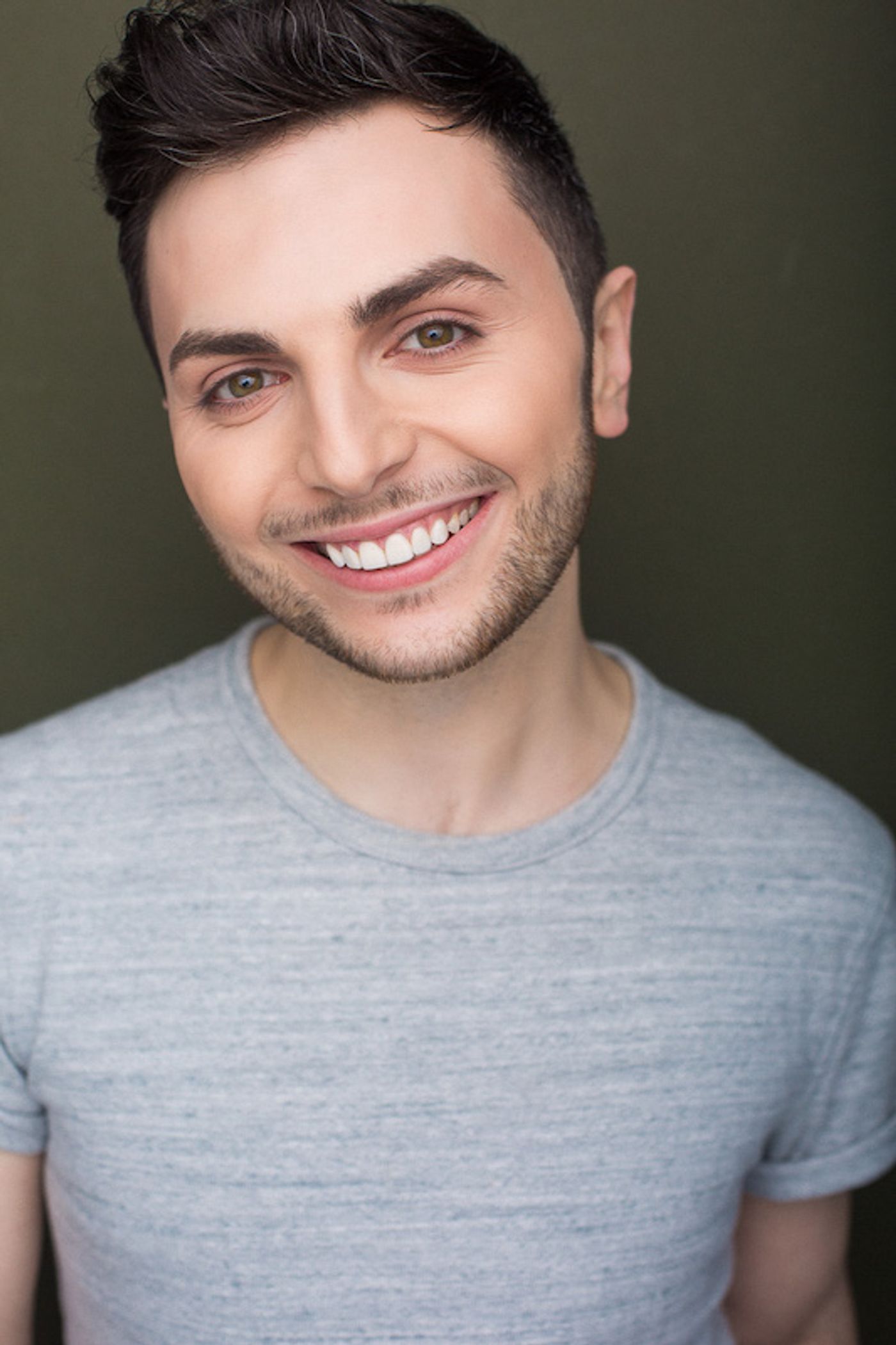 Joe, you had quite a season on the cabaret stage - how many group shows did you sing in before the shutdown?
Joe, you had quite a season on the cabaret stage - how many group shows did you sing in before the shutdown?
Thank you! I was a guest in 7 shows prior to the shutdown. It was a wonderful way to be introduced to the NYC Cabaret and club community.
All of those guest appearances got you a nomination for Best Vocalist in the Broadway World Awards. Are you ready to begin putting together your first solo club act?
I would love that challenge and opportunity. The idea of getting to showcase my range as an actor and vocalist, through cabaret or concert, would be thrilling. For my debut show, the dream would be to have a mini-orchestra or big-band, custom-arrangements, and to be really intentional about the music I choose, stories I tell, and the choices I make-right down to the shoes I wear. Prior to the pandemic, a director, music director, and venue approached me separately with interest, all of whom I'd love to collaborate with. It's just a matter of assembling the right team, and finding the right producer to work with me and help make it a reality.
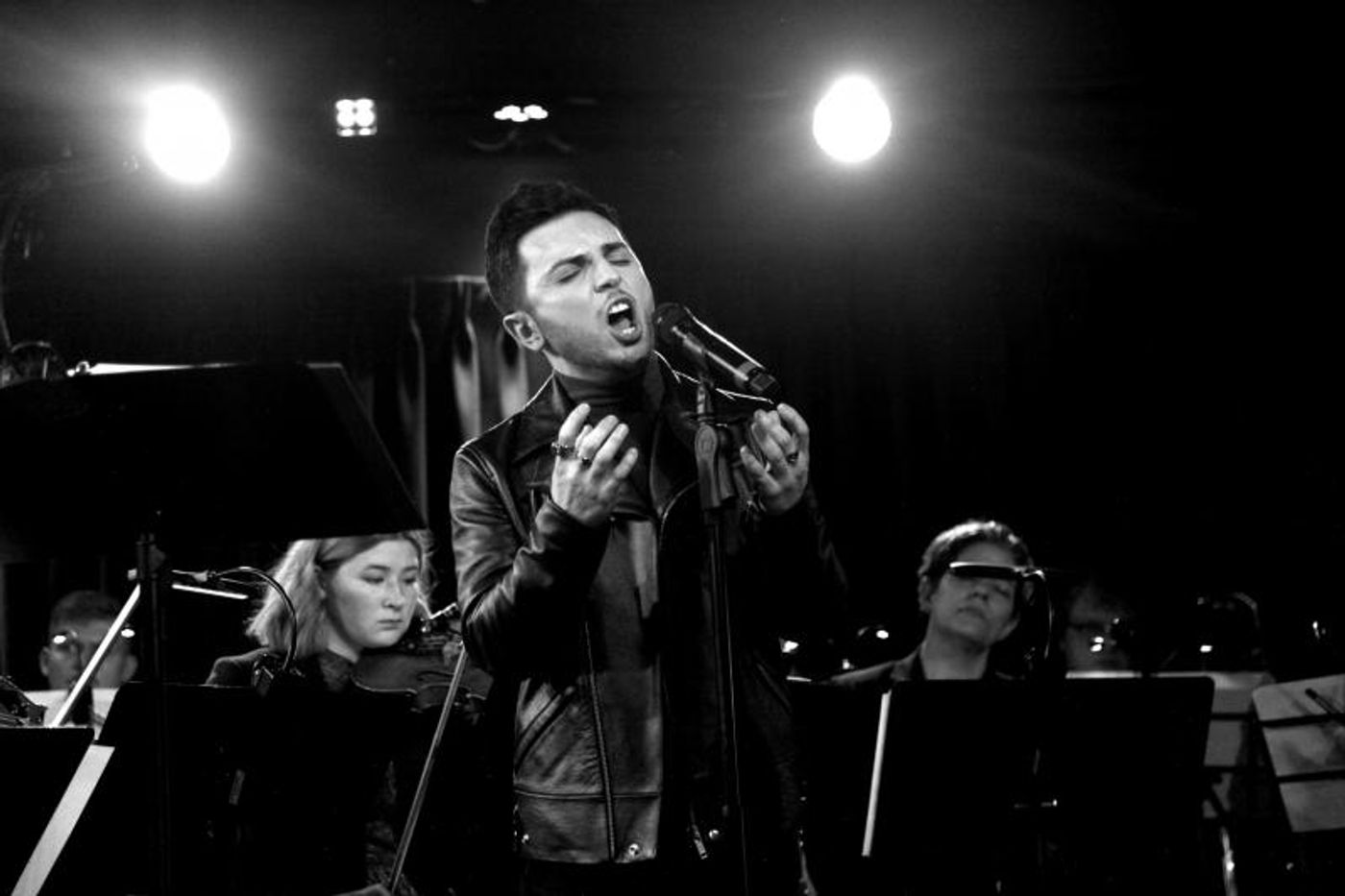
You started your career as an actor, which you continue to pursue, even doing self-tapings during the shelter in place order - when you do a group show in cabaret, do people have auditions like they do in theatre, or do people just call you up and ask you to come sing in their show?
Every performance you do is an audition for the next gig. My debut performance in An Evening With Series... came as a result of reaching out to Blake Allen directly after seeing an ad for his show. I saw the words, "Shirley Bassey" and "14-piece orchestra," and knew that I had to be a part of it. Luckily, he said yes. Because of that performance, song, and review, I started being asked to sing in other shows and started booking through word of mouth. My favorite of those experiences was filling-in last minute and having to learn a Dolly Parton song. In less than 12 hours, I made my country debut, was off-book, sang in the original female key, and ended by belting an accidental High C.
How early in your life did you know that you wanted to go into show business and how did the realization dawn on you?
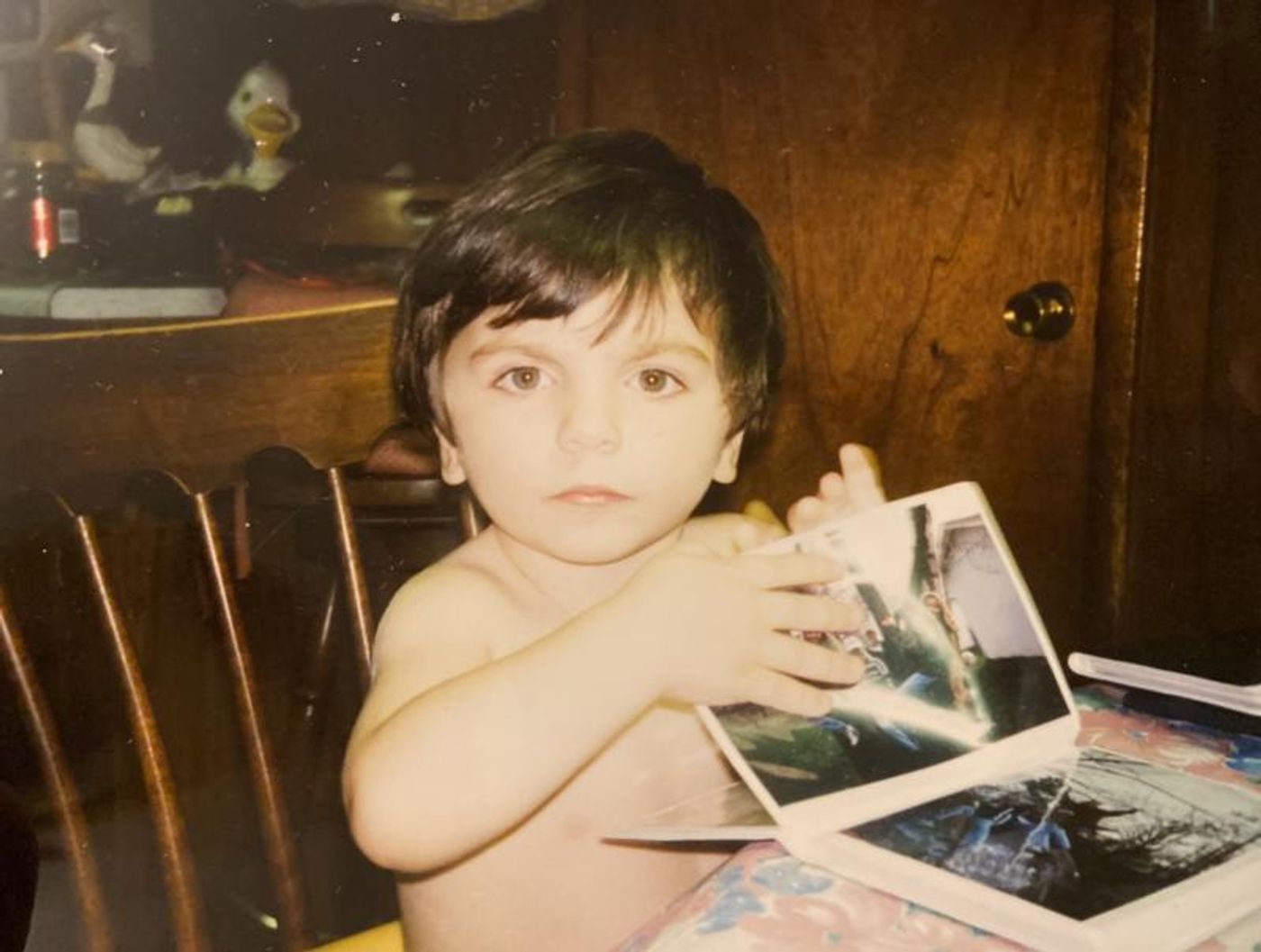 I think I've always known. Looking back at my childhood, my earliest memories are of music and singing. My family said they knew I could sing at the age of two. My teachers took special note of my voice, even in pre-school. Everyone always encouraged me to sing. I took dance classes, sang in choirs, and performed any chance I could. I was in my first professional Equity show at the theatre in my hometown at the age of eight; my audition song was "Over the Rainbow." It was in high school when I discovered that I could really sing and was developing a big voice. The realization came when I finally recognized my own potential and believed in myself.
I think I've always known. Looking back at my childhood, my earliest memories are of music and singing. My family said they knew I could sing at the age of two. My teachers took special note of my voice, even in pre-school. Everyone always encouraged me to sing. I took dance classes, sang in choirs, and performed any chance I could. I was in my first professional Equity show at the theatre in my hometown at the age of eight; my audition song was "Over the Rainbow." It was in high school when I discovered that I could really sing and was developing a big voice. The realization came when I finally recognized my own potential and believed in myself.
Joe, you are well known for the enormity of your voice - do you think people can be taught how to sing as big as you do or is part of it the win of the genetic lottery?
Everyone is born with their own gifts but there are genetic components. My aunt Linda was a professional singer who has a big, beautiful voice. Training, especially classical training, can unlock that potential, developing and growing the voice exponentially. Sometimes it's not genetics or training, it goes much deeper- you have to have gone through something. I think that's where my voice comes from.
You have sung on some big stages, like Lincoln Center and Town Hall. Do producers ever ask you, specifically, to wow the audience by singing without the microphone?
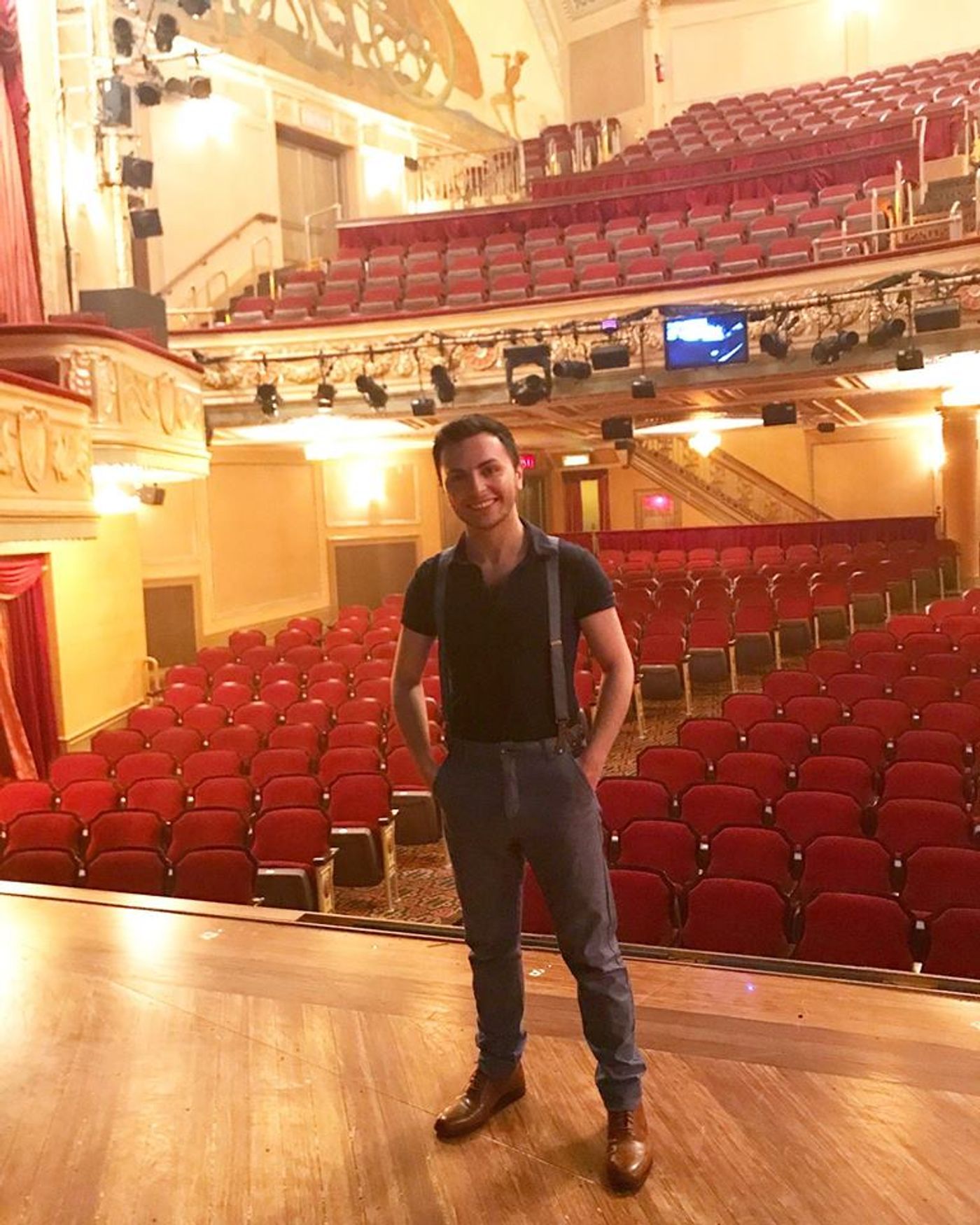 Yes. A few years back, I was asked to be a guest star in a Broadway Unplugged concert at The Town Hall. It was fully unamplified. No body, floor, or handheld microphones. Just the singer, a band, the natural voice, and a 1,495 seat theater. It was a big moment for me.
Yes. A few years back, I was asked to be a guest star in a Broadway Unplugged concert at The Town Hall. It was fully unamplified. No body, floor, or handheld microphones. Just the singer, a band, the natural voice, and a 1,495 seat theater. It was a big moment for me.
Does having such a powerful voice make it difficult to do duets and chorus work?
No! Not at all! I grew up singing in choirs and working in the ensemble of musical theatre. Having a bigger voice should never be an issue if you know how to use it. Duets are about respect, teamwork, and listening; when they go well, it can be magnetic. Two of the most legendary and biggest voices, Judy Garland and Barbra Streisand, gave us one of the most iconic duets of all time, so it's possible!
When you sing around the house do you ever find yourself worrying about the neighbors?
I try to be as respectful as possible but the walls are just too thin. I can't always help if I have an early morning audition or performance. I have to do what I have to do.
Many nightclub singers work with just a piano but you've had the chance to sing with a 14-piece orchestra - how do those two experiences inform the art of a singing actor?
A piano is like a skeleton, the backbone, the infrastructure of song; it leaves gaps and spaces that need to be filled by the choices I make. Whereas, with an orchestra, those gaps and spaces are filled in with colors and nuance. It brings forth the subtleties, emotionality, and tone of a piece of music. It breathes life into a composition and brings subtext that might not have otherwise been noticed to light. This greatly informs the choices I make as an Actor. It affects the way that I tell a story or experience emotional truths and revelations. It changes the physical energy and emotional climax. At the end of the day, my job as a singing actor is the same regardless, but my heart will always lay with the thrill of performing with an orchestra.
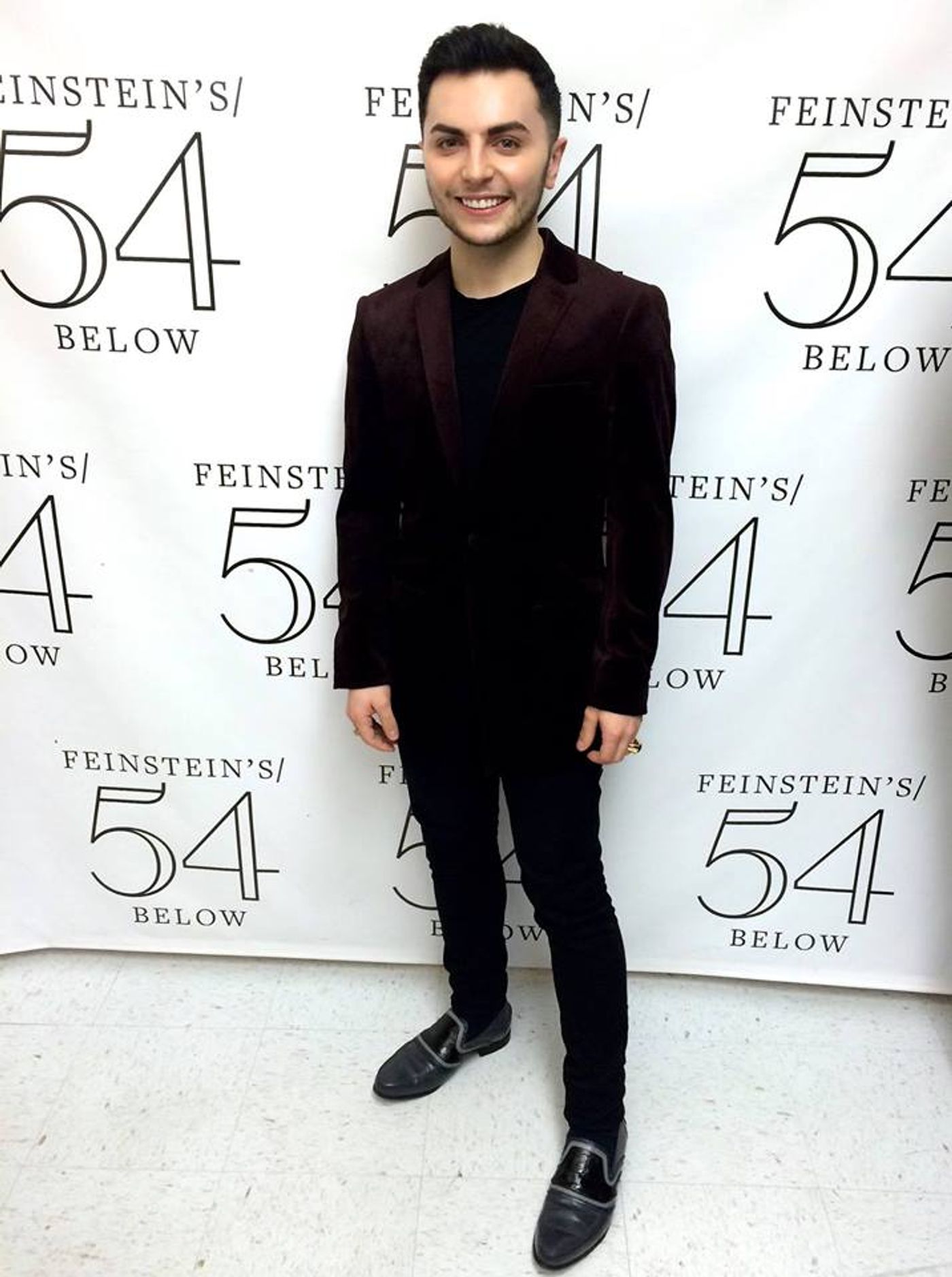 You have a very individual and chic fashion sense - how did that sense of style develop for you?
You have a very individual and chic fashion sense - how did that sense of style develop for you?
That's very kind of you to say. My Mom, Cindy and Grandma, Mary both influenced my style greatly. They both loved to dress me and always made sure I had nice clothes while growing up. I would describe my style as 1950's with an edge. My Grandma gave me the fifties, and my Mom the edge. I try to be timeless and effortless, never trendy, but never boring. I focus on quality, fit, details, and feeling. I'm always refining, evolving, and trying new things. In my daily life, I'm pretty simple. But for performances, I use clothing as a means of expression establishing the mood, message, and vibe of the song. It's very intentional and all about the finer details.
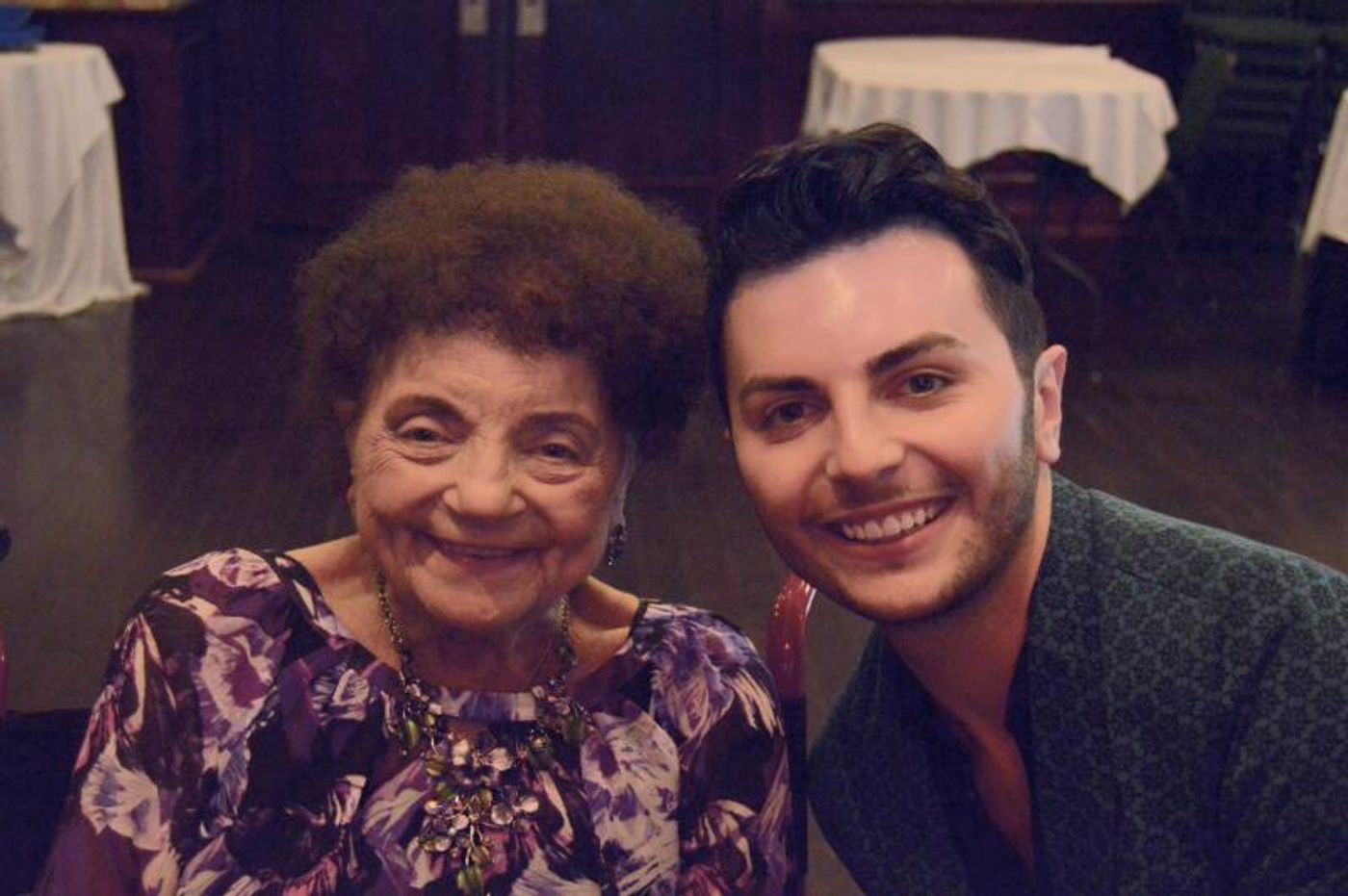
You take the craft of acting very seriously, deconstructing songs you sing, finding the subtext in the song - is that something a coach taught you or does that focus come to you inherently?
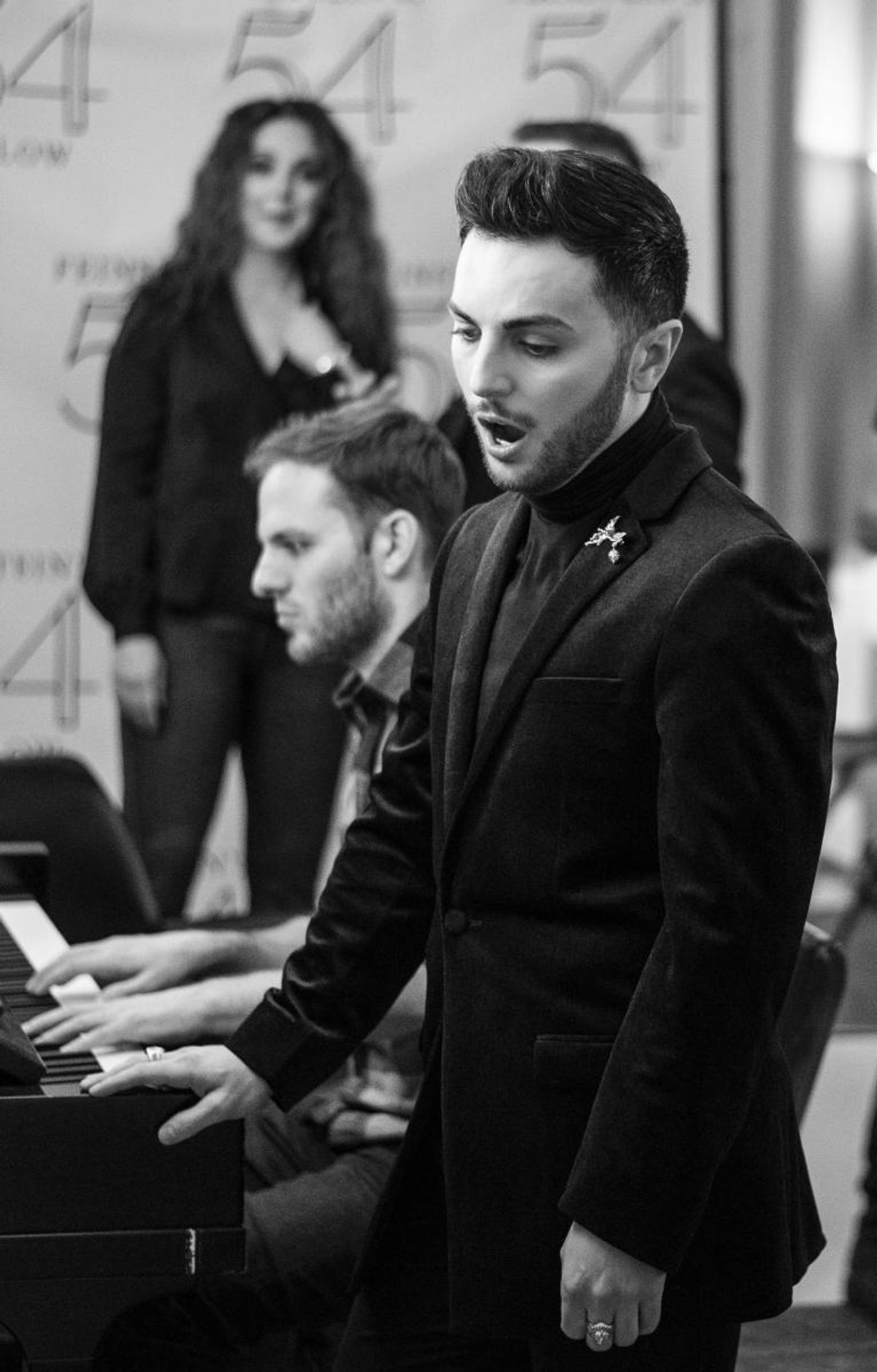 It is inherent to me. I'm naturally a detective, researcher, and explorer. The reason I deconstruct songs, working line by line, is so that I can fully understand the lyric, and what it means specifically to me. When I sing a song as myself, and not through the lens of a character, the song becomes a direct expression of my own personal point of view. I try to be even more specific when I sing a song that is well-known, or one that can be interpreted in many different ways. It is the only way that you can make it your own and not as it has been done before. I want my perspective to be clear so an audience will understand and connect. I approach the lyric and tell the story as if the words are coming from a personal and vulnerable place, deep within my soul-it becomes my story to tell.
It is inherent to me. I'm naturally a detective, researcher, and explorer. The reason I deconstruct songs, working line by line, is so that I can fully understand the lyric, and what it means specifically to me. When I sing a song as myself, and not through the lens of a character, the song becomes a direct expression of my own personal point of view. I try to be even more specific when I sing a song that is well-known, or one that can be interpreted in many different ways. It is the only way that you can make it your own and not as it has been done before. I want my perspective to be clear so an audience will understand and connect. I approach the lyric and tell the story as if the words are coming from a personal and vulnerable place, deep within my soul-it becomes my story to tell.
You recently lost your mother, with whom you were very close - put a picture in my head of that relationship and the ways in which she supported your dreams and goals.
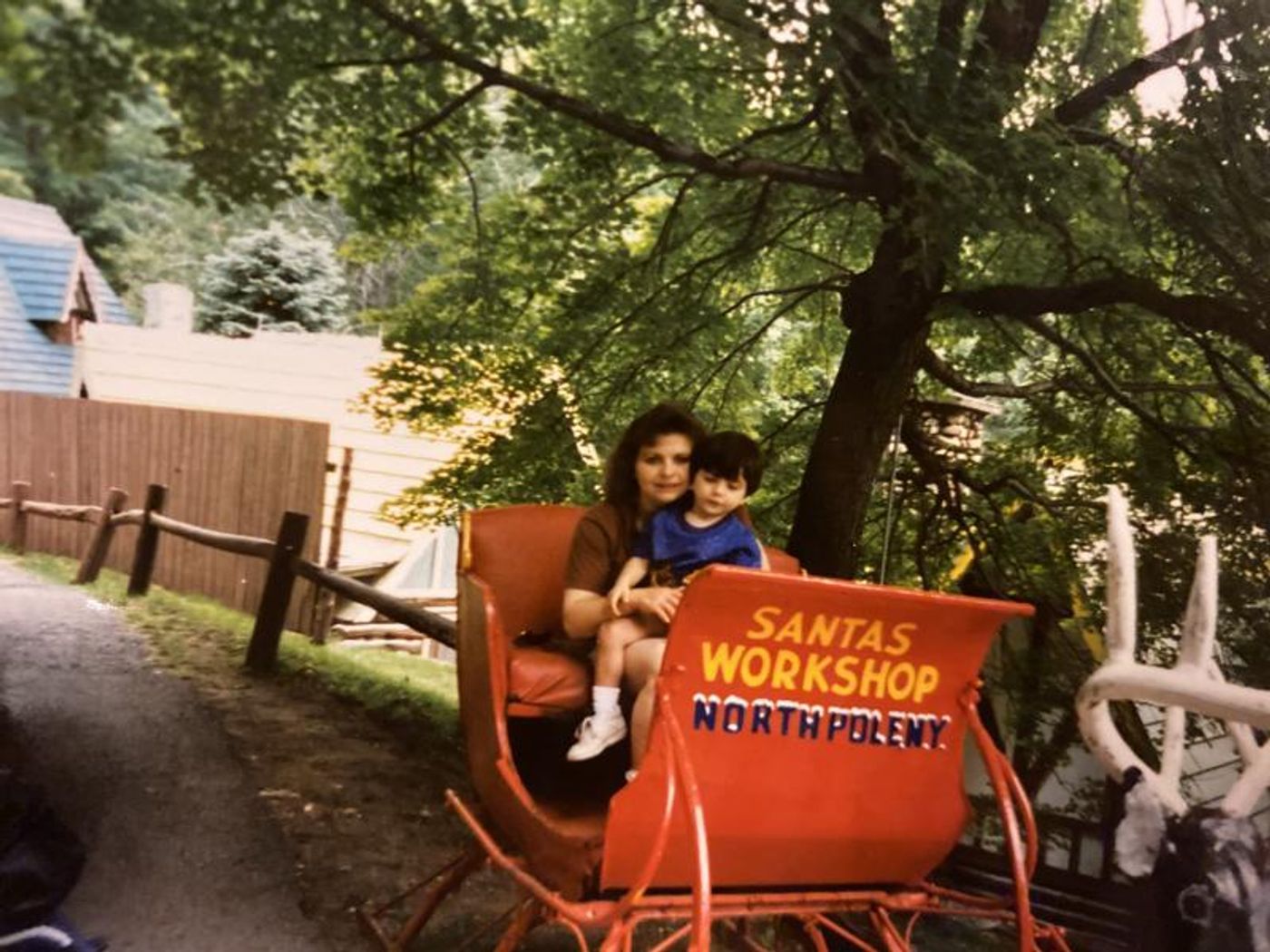 I was an only-child and my Mom, Cindy raised me as a single-parent. She was a very strong, independent and courageous woman who overcame many obstacles in her life. She was a Survivor. She used every struggle as an opportunity to rebuild, prove herself, and become a stronger, more self-sufficient person. She was incredibly smart, clever, savvy, and humorous. These are all qualities that I possess because of her. My mom was fiercely protective of me and would do anything she could for my sake. She wasn't into theatre, and definitely was not a stage Mom, but she always let me be who I wanted, and enabled me to do what I loved to do. She put me into dance class because I wanted to and she would take me on NYC bus trips every chance we could afford. My mom shared her love of music with me. I grew up listening to Meatloaf (which was her favorite), Elton John, everything Eighties, big-voiced country singers and story songs-all musically theatrical in their own right which all impacted me. My Mom would proudly say that I knew all the words to "Bat out of Hell" when I was just two years old much to my Grandma, Mary's dismay. All she was and all she taught me has helped become who I am today, as both a human being and as an artist. I wouldn't be as strong, determined or as ambitious as I am, if It weren't for my Mom. Our relationship wasn't perfect, but she gave me her inherent wisdom and tenacity-the fight and drive to never give up on my dreams. She taught me how to persevere and pursue life like a "Bat out of Hell."
I was an only-child and my Mom, Cindy raised me as a single-parent. She was a very strong, independent and courageous woman who overcame many obstacles in her life. She was a Survivor. She used every struggle as an opportunity to rebuild, prove herself, and become a stronger, more self-sufficient person. She was incredibly smart, clever, savvy, and humorous. These are all qualities that I possess because of her. My mom was fiercely protective of me and would do anything she could for my sake. She wasn't into theatre, and definitely was not a stage Mom, but she always let me be who I wanted, and enabled me to do what I loved to do. She put me into dance class because I wanted to and she would take me on NYC bus trips every chance we could afford. My mom shared her love of music with me. I grew up listening to Meatloaf (which was her favorite), Elton John, everything Eighties, big-voiced country singers and story songs-all musically theatrical in their own right which all impacted me. My Mom would proudly say that I knew all the words to "Bat out of Hell" when I was just two years old much to my Grandma, Mary's dismay. All she was and all she taught me has helped become who I am today, as both a human being and as an artist. I wouldn't be as strong, determined or as ambitious as I am, if It weren't for my Mom. Our relationship wasn't perfect, but she gave me her inherent wisdom and tenacity-the fight and drive to never give up on my dreams. She taught me how to persevere and pursue life like a "Bat out of Hell."
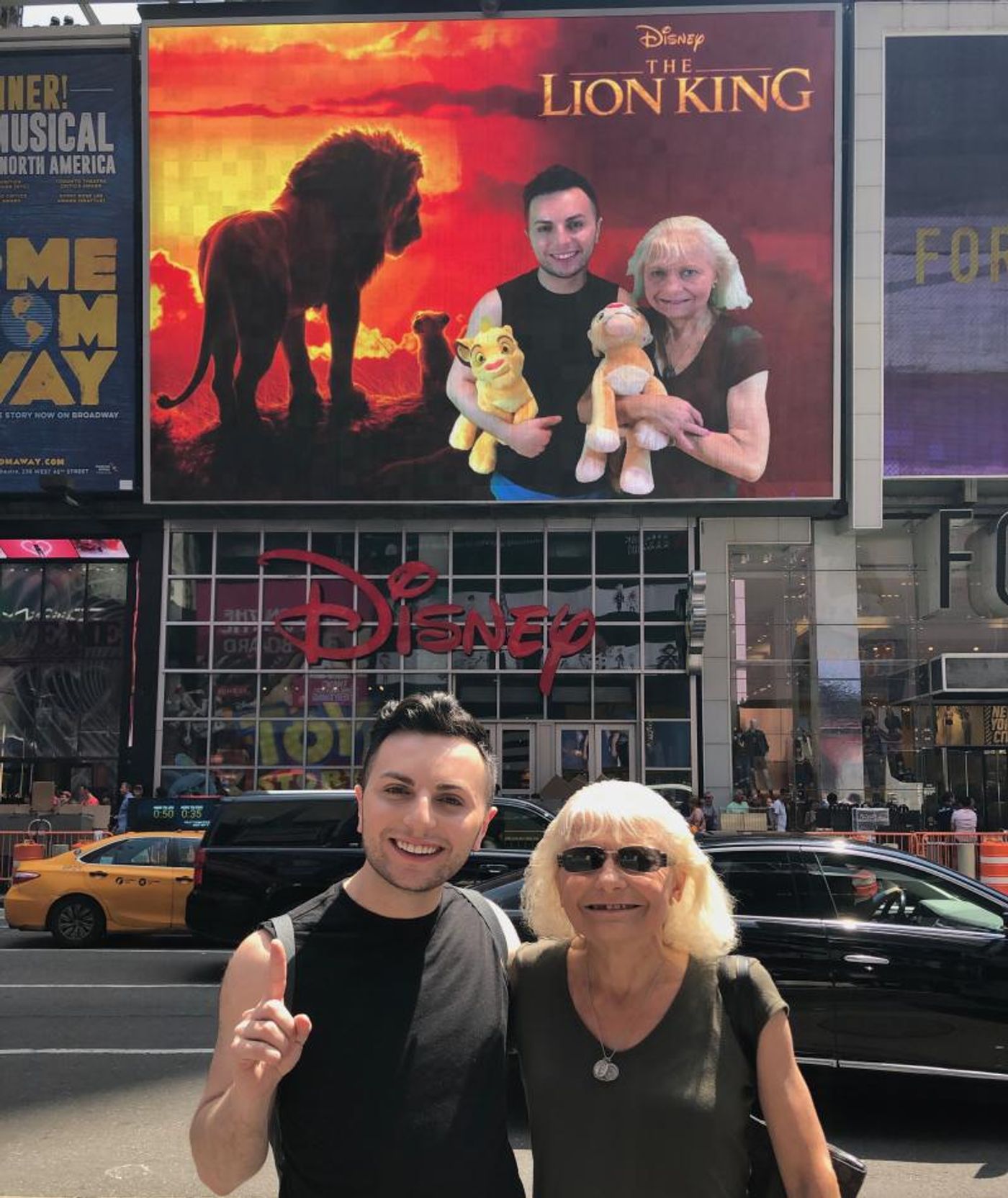
When the world returns to a normal place and we are all back to pursuing our lives, what would you like to make happen for yourself?
I will be seeking an agent and manager who would help me progress toward the next steps in my career. I will go back to auditioning for Musical Theatre, and would like to start venturing more into TV/Film. Being a unique type to cast, I would kill to work on a new musical from the ground up. I'm also looking forward to getting back to cabaret and concert work, and potentially working on that solo debut and recording an EP. This all depends on when our industry will reopen safely, however that may look, but I'm excited to see what the future has in store, and what I can make happen!
Thank you so much for chatting with us today, and good luck with the Broadway World Awards.
Thank you so much for having me, Stephen! Happy Holidays and Happy New Year!!!!
To vote in the Broadway World Awards click HERE.
Editor's note: I was at Birdland when Joe had to go mic-less and caught this on my phone:
Editor's note: Watch the woman behind Joe - even behind her mask, you can see how strongly she is reacting:
.jpg?format=auto&width=1400)
Videos

